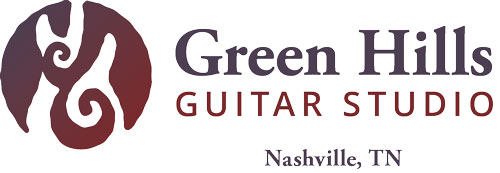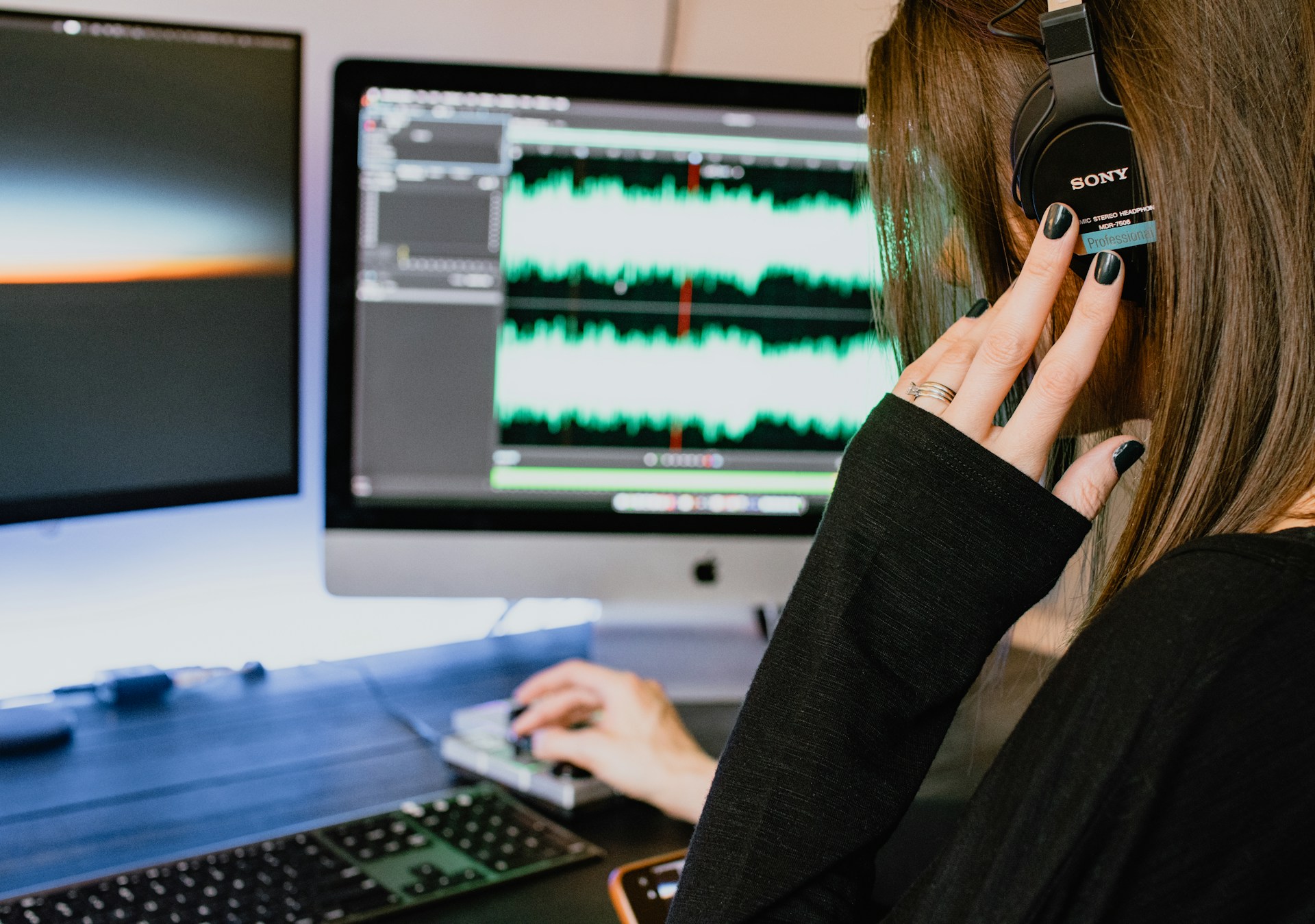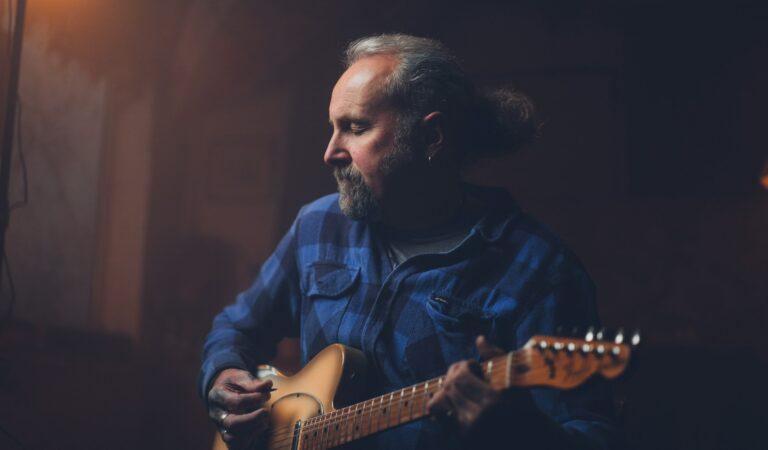How to Record a Song: From Demo to Finished Track
Learning how to record a song is a crucial skill for any songwriter. Whether you’re creating a demo to pitch your music or preparing to release a polished track, the quality of your recording can significantly impact your success.
High-quality recordings capture your creative vision and showcase your talent to listeners, producers, and collaborators.
In this guide, we’ll explore the process of recording high-quality demos and transforming them into finished tracks. From setting up your recording space to working with producers and engineers, you’ll learn essential tips and techniques for recording your music better.
Let’s dive in and discover how to create professional recordings that elevate your music to the next level.
Preparing to Record Your Song
Before diving into the recording process, laying a solid foundation is crucial. Here’s how to get started:
Setting Up Your Space
- Choose the right environment: Select a quiet space with minimal background noise. Consider acoustic treatment like foam panels or curtains to improve sound quality.
- Basic equipment needed: Ensure you have a quality microphone, audio interface, and a Digital Audio Workstation (DAW) installed on your computer.
- Acoustic treatment tips: Rugs, furniture, and other soft materials can reduce echo and create a more controlled recording environment.
Organizing Your Song
- Finalize your song structure: Confirm the arrangement of your song, including verses, choruses, bridges, and any instrumental breaks.
- Create a roadmap: Write down your lyrics, chords, and any musical notation you need to follow during recording.
- Rehearse: Practice performing your song to ensure a smooth recording session and to iron out any potential issues with timing or performance.
Selecting the Right Recording Gear
- Microphones and audio interfaces: Research and invest in a microphone that suits your voice or instrument. Consider your audio interface carefully, ensuring it’s compatible with your DAW.
- Essential software and plugins: Install necessary plugins for recording and mixing. Experiment with different effects to find what works best for your sound.
- Optional gear: Depending on your budget and needs, you may consider adding additional equipment to enhance your recording setup, such as headphones, studio monitors, or a MIDI controller.
When it comes to knowing how to record a song, don’t underestimate the importance of preparing your recording space and organizing your song ahead of time. This will help streamline the recording process and ensure you achieve the best possible results.
Recording High-Quality Demos
Once you’ve set up your recording space and organized your song, it’s time to start recording. Here are some things to consider to capture a high-quality demo:
Getting the Perfect Take
- Tips for recording vocals and instruments: Position the microphone correctly and adjust levels to avoid distortion. Experiment with microphone placement to find the best sound.
- Layering tracks: Record multiple takes of each part (vocals, guitar, etc.) to create a fuller sound. Use comping techniques to select the best parts from each take.
- Importance of multiple takes: Recording multiple takes allows you to choose the best performance and ensure accuracy in timing and delivery.
Achieving a Clean Sound
- Managing background noise: You can eliminate background noise by closing windows, turning off fans, and using noise reduction tools in your DAW.
- Proper mic placement: Position the microphone to capture the best sound. Experiment with distance and angle for optimal results.
- Using pop filters and windscreens: Pop filters or windscreens can reduce pops and unwanted sounds during vocal recordings.
Basic Mixing and Editing
- Balancing levels and panning: Adjust volume levels and pan instruments to create a balanced mix. Use automation to control volume changes over time.
- Adding EQ, compression, and reverb: Enhance the sound of your recordings by using EQ to adjust frequencies, compression to even out dynamics, and reverb to add depth.
- Editing mistakes: Use editing tools in your DAW to cut out mistakes, adjust timing, and polish your tracks.
Recording high-quality demos requires attention to detail and experimentation. Following these steps, you can create professional-sounding recordings that effectively capture your creative vision.
Working with Producers and Engineers
Working with producers and engineers can elevate your recordings to the next level. Here’s how to collaborate effectively:
Finding the Right Producer or Engineer
- Understanding the roles: Producers oversee the entire creative process, while engineers focus on technical aspects like recording and mixing.
- Choosing the right professional: Look for someone whose style and expertise align with your musical goals. Seek recommendations and listen to their previous work.
- Questions to ask: Inquire about their experience, workflow, and how they handle feedback and revisions.
Preparing for Studio Sessions
- Organize your materials: Bring your finalized demos, lyrics, chord charts, and reference tracks to the studio.
- Set clear goals: Communicate your vision, goals, and expectations for the recording session. Discuss arrangements, musical hooks, and potential production ideas.
- Effective communication: Establish open lines of communication to ensure everyone is on the same page creatively.
Maximizing Studio Time
- Efficient recording: Focus on capturing the best performances. Be open to trying different approaches and experimenting creatively.
- Collaboration: Work closely with the producer and engineer to refine your sound. Provide feedback and be open to their suggestions.
- Creative adjustments: Be willing to adjust arrangements, instrumentation, and production elements as needed.
The Post-Production Process
- Mixing and mastering: Trust the producer and engineer to mix your tracks professionally. Provide constructive feedback during the mixing process.
- Reviewing and finalizing: Listen to the final mixes and provide feedback. Make sure you’re satisfied with the balance, clarity, and overall sound.
- Preparing for distribution: Discuss options for distributing your music and prepare metadata and artwork for release.
Working with experienced producers and engineers can enhance your recordings and bring your musical vision to life. To achieve the best results, collaborate closely, communicate effectively, and be open to creative possibilities.
Additional Tips and Resources
Enhancing your recording skills and navigating the music industry can be challenging, but these tips and resources can help you on your journey:
Continual Learning and Improvement
- Educational Resources: Explore online tutorials, courses, and books on recording, mixing, and mastering. Websites like Puremix and Produce Like a Pro offer comprehensive courses on music production.
- Community Forums: Join forums and online communities like Gearspace, Reddit’s r/audioengineering, and the Home Recording forum to connect with other musicians and producers, share tips, and seek advice.
- Workshops and Webinars: Attend workshops and webinars hosted by industry professionals to stay updated on the latest techniques and trends in music production.
Leveraging Green Hills Guitar Studio Services
Green Hills Guitar Studio offers a unique service to assist artists, songwriters, and bands plan and execute recording projects or live performances. Our instructors, with years of professional experience as songwriters, artists, performers, and session musicians, provide mentorship and guidance from project inception to completion. Here’s how we can help:
- Comprehensive Project Facilitation: Whether you’re looking to demo your songs or record an EP or LP, we offer full support to help you achieve your recording goals professionally in Nashville.
- Experienced Guidance: Our instructors have completed numerous projects and have deep connections within the Nashville music community, including access to top recording studios, producers, and engineers.
- Tailored Support: We promise to be a complete and professional resource dedicated to your growth as an artist, writer, and performer. Our team provides mentorship, guidance, and feedback to help you realize your creative vision.
Our expertise and dedication ensure that your recording project is approached with the same care and commitment as our own, helping you achieve professional results and advance your music career.
The Coda
Recording high-quality demos is a crucial step in your songwriting journey. We’ve covered everything from setting up your recording space, organizing your song, capturing perfect takes, and collaborating with producers and engineers. Remember, investing time and effort into creating professional demos can transform your music and open doors to new opportunities.
Don’t forget to stay connected for more tips and updates! Sign up for our newsletter and follow us on social media. Get in touch to schedule a demo session, and we’ll help you bring your musical vision to life!







